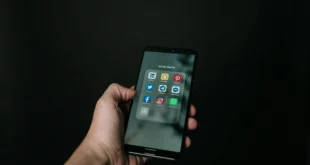Issue 37, Winter/Spring 2024 https://doi.org/10.70090/ON24CTJJ Abstract Artificial intelligence (AI) is a tremendous technological advancement that impacts journalism. The expansion of AI throughout the news industry could help manage routine tasks traditionally performed by journalists, which unburdens journalists from mundane tasks and allows them to reallocate their time to other novel …
Read More »World Affairs
The Attitudes of Journalists Toward Written Content Generated by AI
Issue 37, Winter/Spring 2024 https://doi.org/10.70090/AMEN24AI Abstract This experimental study investigates the attitudes of journalists towards written content that is generated by artificial intelligence (AI) when compared to human-written journalistic pieces. The methodology utilized a comparative experiment that relied upon four journalists and three AI platforms, which respectively wrote an article …
Read More »Leveraging AI for Effective Fake News Detection and Verification
Issue 37, Winter/Spring 2024 https://doi.org/10.70090/BSAN24FN Abstract The rapid proliferation of fake news, misinformation, and disinformation poses a tremendous threat to the integrity of news and media production. This hazard is augmented by the instantaneous capacity to disseminate fallacious content globally with simply a touch of a button. As a result …
Read More »Emerging Reporters in a Nascent Democracy: How Tunisian Pre-Professional Journalists Perceive and Use Social Media in Their Work
Issue 37, Winter/Spring 2024 https://doi.org/10.70090/CN24EMND Abstract Tunisia’s Jasmine Revolution facilitated the development of the nation’s first press freedoms. The success of the 2011 revolution is often attributed to social media, which played an influential role as a means of catalyzing resistance and communicating atrocities. However, social media was also used as …
Read More »Alienation Issues and Artificial Intelligence in the Era of Society 5.0
Issue 37, Winter/Spring 2024 https://doi.org/10.70090/TI24AIS5 Abstract The phenomenon of alienation, which is widely examined in both specialized and general studies, has seen a decline in its conceptual clarity and usage in recent times. Meanwhile, a new paradigm known as Society 5.0 has emerged, which coincides with the technological surge in …
Read More »AI and Algorithms Tackling the Media and Creative Industries: Addressing Societal Consumer Behavior Directions and Challenges in the Next Digital Frontier
Issue 37, Winter/Spring 2024 https://doi.org/10.70090/SN24AIAT Abstract In the past decade, artificial intelligence (AI) has rapidly developed and proliferated. This growth is revolutionizing business and commerce, as well as how individuals interact. The industry of media, which encompasses broadcasting, advertising, entertainment, and journalism, has been impacted by this novel and revolutionary …
Read More »Book Review – Media Management and Artificial Intelligence Understanding Media Business Models in the Digital Age
Connock, A. (2022). Media Management and Artificial Intelligence Understanding Media Business Models in the Digital Age. Routledge. ISBN 9781032100944, 344 Pages 16 B/W Illustrations, Published November 18, 2022, by Routledge. The recently published book authored by Alex Connock scrutinizes contemporary media business models in the context of Artificial Intelligence (AI) and …
Read More »The Participation of Arab Women in the Media Industry and Cultural Diplomacy as a Tool for Geopolitical Public Relations (Arabic)
Issue 36, Summer/Fall 2023 https://doi.org/10.70090/GST23AWM Scroll down for Arabic abstract. Media and communication systems play a significant role in shaping international and geopolitical relations. The current study examines the different types of participation by Arab women in the media industry and cultural diplomacy, which serve as a tool for international …
Read More »Issue Introduction | Decoding the Echo Chamber: The Proliferation and Impact of Fake News in Arab Media Post-Arab Spring
Issue 35, winter/spring 2023 https://doi.org/10.70090/AG23DECP In our information-driven society, individuals increasingly consume news instantly via online platforms, including news websites, social media, blogs, and forums. In particular, social media platforms have become fertile ground for the proliferation of fake news, where false information is produced and widely disseminated, often from …
Read More »Book Review | Fake News in Digital Cultures
Issue 35, winter/spring 2023 https://doi.org/10.70090/FR23FNDC Fake News in Digital Cultures by Rob Cover, Ashleigh Haw, and Jay Daniel (2022), promises “a new approach to understanding disinformation and misinformation in contemporary digital communication.” Studying the digital world from a cultural perspective, the authors propose looking at fake news as a normal byproduct …
Read More » Arab Media & Society The Arab Media Hub
Arab Media & Society The Arab Media Hub










